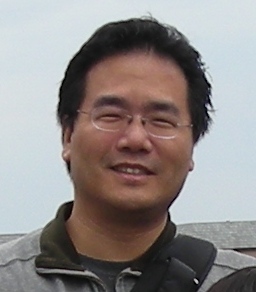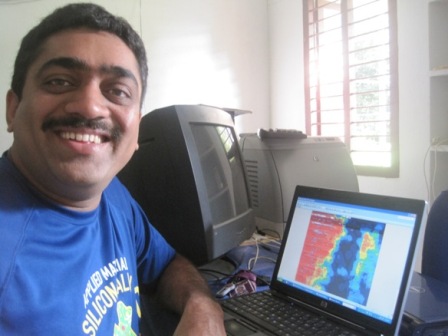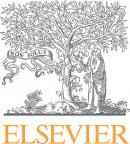Keynote Speakers
Jim Hendler (Rensselaer): "Why the Semantic Web will never work"
Abstract
TBA
About Jim Hendler

James Hendler is the Tetherless World Professor of Computer and Cognitive Science, and the Assistant Dean for Information Technology and Web Science, at Rensselaer. He is also a faculty affiliate of the Experimental Multimedia Performing Arts Center (EMPAC), serves as a Director of the UK's charitable Web Science Trust and is a visiting Professor at the Institute of Creative Technology at DeMontfort University in Leicester, UK. Hendler is a Fellow of the American Association for Artificial Intelligence, the British Computer Society and the IEEE. He is also the former Chief Scientist of the Information Systems Office at the US Defense Advanced Research Projects Agency (DARPA) and was awarded a US Air Force Exceptional Civilian Service Medal in 2002. He is the Editor-in-Chief emeritus of IEEE Intelligent Systems and is the first computer scientist to serve on the Board of Reviewing Editors for Science. In 2010, Hendler was named to the "honor roll" of the 20 most innovative professors in America by Playboy magazine.
Hendler also serves as an "Internet Web Expert" for the US government, providing guidance to the Data.gov project.
Abe Hsuan (Irwin & Hsuan LLP): The Pirated "I" or How Privacy Can't Exist on a Lawless Semantic Web
Abstract:
An explosion of digital information about us exists and persists in the databases of the businesses, governments and networks we engage with daily. Most all of it does not identify us personally. Existing legal regimes approach "privacy" by regulating how specific bits and bytes of Personally-Identifiable Information (PII), such as names, addresses, government-issued IDs, email addresses, etc., can and should be used, stored and shared. However, advancements in knowledge discovery and data-mining (KDD) technologies and the advent of the semantic web mean that PII is no longer needed to know with sufficient certainty an individual's likes, dislikes, socio-economic status, residence, politics, religion, addictions, etc. As we use our mobile devices, surf the web, send messages, shop for necessities like food, clothing and medicine, consume media, or simply walk on the streets of any large city in the world (and many small towns as well), we open ourselves up to having our identities "pirated" for both wanted and unwanted purposes. What can the law do about this fast-arriving future when we can no longer reasonably expect our privacy to be protected or protectable?
About Abe Hsuan

Abe Hsuan is a founding partner of the law firm Irwin & Hsuan LLP where he specializes in advising private equity and start-up clients in the areas of Internet, technology, data management and privacy laws. He has held senior legal positions at several major online and traditional media companies (Oxygen Media, LinkShare, Scholastic), was a Managing Director of an early-stage technology venture fund and incubator (VennWorks) and began his legal career at the international law firm of Debevoise & Plimpton. He has been a member of the Association of Corporate Counsel, the International Trademark Association, the American Intellectual Property Law Association and the Bar Association of the City of New York. Mr. Hsuan served as a Lecturer for the Practicing Law Institute in 2004 on the then-recently enacted U.S. anti-spam laws. That same year, he was honored by the New York County Lawyers' Association as a celebrated lawyer of color. Mr. Hsuan holds an A.B. degree from Princeton University and a J.D. from the New York University School of Law.
Prasad Kantamneni: "Seeing Vs. Noticing: Helping users find and use information quickly"
Abstract
Often times, businesses balance multiple goals when designing products. In the process of balancing these goals, we sometimes loose sight of our customer, and sacrifice creativity. In this talk Prasad Kantamneni will share his experiences and lessons learned in the course of delivering a great user experience to billions of users a month. He will share case studies and processes for using diverse sets of data to make quick decisions without loosing sight of the customer, compromising on creativity, or loosing revenue. He will also share ways to quantify the value of user experience after a product is launched.
About Prasad Kantamneni

Prasad Kantamneni is a User Experience consultant specializing in data driven design. He was the principal architect of the Eye-Tracking platform at Yahoo!, and built the Yahoo! Human Perception Center of Excellence. His work at Yahoo! led to significant user experience and revenue improvements. He has also worked and consulted with a number of companies including Honeywell, Lexis Nexis, and eBay. One of the achievements he is most proud of, is using research to build a case and drive the launch of the search assistance feature (also known as search suggestions) at Yahoo!. This allowed Yahoo! be the first search engine to deploy the Search Assistance feature -- a feature that is now synonymous with searching.
Andraž Tori (Zemanta): "Quantity vs. quality on the consumer web"
Abstract
Do you like content farms? You are helping them succeed. Every improvement in open structured data, machine learning and NLP gives rouge web players an ammo in the battle against search engines and users. On the other hand many owners of the curated and high quality data aren't (yet) reaping benefits from those technologies. At time of this writing Demand Media has the same market cap as New York Times. So let's look at the good, the bad and the ugly on the web. Who are real beneficiaries of semantic web and related tech? Where are they hiding?

About Andraž Tori
Andraž Tori co-founded Zemanta in 2007 where he serves as a CTO. He architected Zemanta's semantic-based analysis& discovery engine. Prior to that he hosted TV show on information technologies at Slovenian national television (2002-2007). There he noticed the opportunity for authoring tools that understand text content. He also co-founded and was a program manager of the most successful Slovenian cyber-center Kiberpipa (2001-2007).
Andraz has been programming since he was 10 and has a formal computer science background. However his diverse interests also drove him to acquire non-tech skills. His mission is to take state of the art tech and hide it behind simplest possible user interface.
Lars Backstrom (Facebook): "Dealing with structured and unstructured data at Facebook"
Abstract
Facebook has undergone tremendous growth in the last five years. Here we will start by looking at some basic statistics and trends that have accompanied this growth. We'll then dive into two different topics. First, we will look at a general trend to make data more structured at Facebook. Having more structured data makes it easier to manage, understand, and leverage it. I will briefly discuss the tools (Hive) that have been built to enable the massive-scale data analysis that goes on at Facebook on a daily basis.
In the second part of the talk, I will dive into the details of one of the systems that has contributed to the growth of Facebook: People You May Know. This system generates a significant number of the friend connections on Facebook, and by using increasingly sophisticated machine learning techniques, we have been able to make large improvements to the ranking used by the system since its original launch.

About Lars Backstrom
Lars Backstrom is a Data Scientist at Facebook, where he works on data analysis and machine learning systems. Since joining Facebook, he has made significant improvements to the friend suggestion ranking system. He is responsible for the backend system which does feature extraction and ranking of the friends of friends of over 500 million users (times an average of 40,000 friends of friends means 20 trillion rankings). Before joining Facebook in 2009, Lars was a Ph.D. student at Cornell University, where he developed algorithms for data mining in social networks, query logs, and server logs.
Jure Leskovec (Stanford University): " Rhythms of Information Flow through Networks "
Abstract
The information we experience online comes to us continuously over time, assembled from many small pieces, and conveyed through our social networks. This merging of information, network structure, and flow over time requires new ways of reasoning about the large-scale behavior of information networks.
I will discuss a set of approaches for tracking information as it travels and mutates in online networks. We show how to capture and model temporal patterns in the news over a daily time-scale -- in particular, the succession of story lines that evolve and compete for attention. I will also discuss models to quantify the influence of individual media sites on the popularity of news stories and algorithms for inferring latent information diffusion networks.

About Jure Leskovec
Jure Leskovec is assistant professor of Computer Science at Stanford University where he is a member of the InfoLab and the AI lab. He joined the department in September 2009. In 2008/09 he was a postdoctoral researcher at Cornell University working with Jon Kleinberg and Dan Huttenlocher. Jure completed his Ph.D. in Machine Learning Department, School of Computer Science at Carnegie Mellon University under the supervision of Christos Faloutsos in September 2008. He did his undergraduate in computer science at University of Ljubljana, Slovenia, and now also collaborates with the Artificial Intelligence Laboratory, Jozef Stefan Institute, Ljubljana, Slovenia.
Chris Welty (IBM Research) - Dinner Keynote

About Chris Welty
Chris Welty is a Research Scientist at the IBM T.J. Watson Research Center in New York. Previously, he taught Computer Science at Vassar College, taught at and received his Ph.D. from Rensselaer Polytechnice Institute, and accumulated over 14 years of teaching experience before moving to industrial research. Chris' principal area of research is Knowledge Representation, specifically ontologies and the semantic web, and he spends most of his time applying this technology to Natural Language Question Answering as a member of the DeepQA/Watson team and, in the past, Software Engineering. Dr. Welty is a co-chair of the W3C Rules Interchange Format Working Group (RIF), serves on the steering committee of the Formal Ontology in Information Systems Conferences, is president of KR.ORG, on the editorial boards of AI Magazine, The Journal of Applied Ontology, and The Journal of Web Semantics, and was an editor in the W3C Web Ontology Working Group. While on sabbatical in 2000, he co-developed the OntoClean methodology with Nicola Guarino. Chris Welty's work on ontologies and ontology methodology has appeared in CACM, and numerous other publications.








